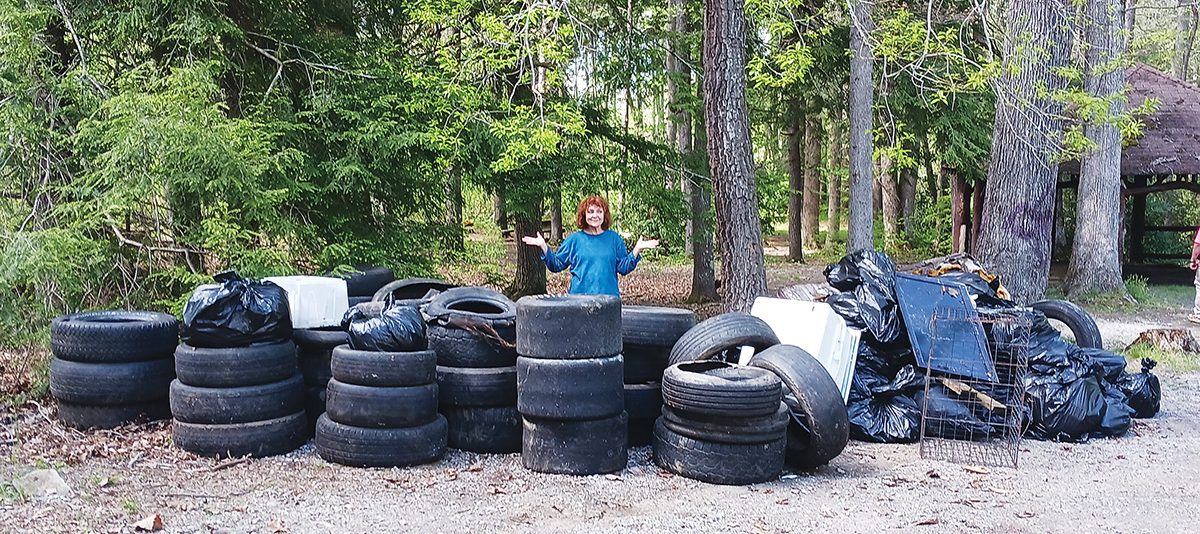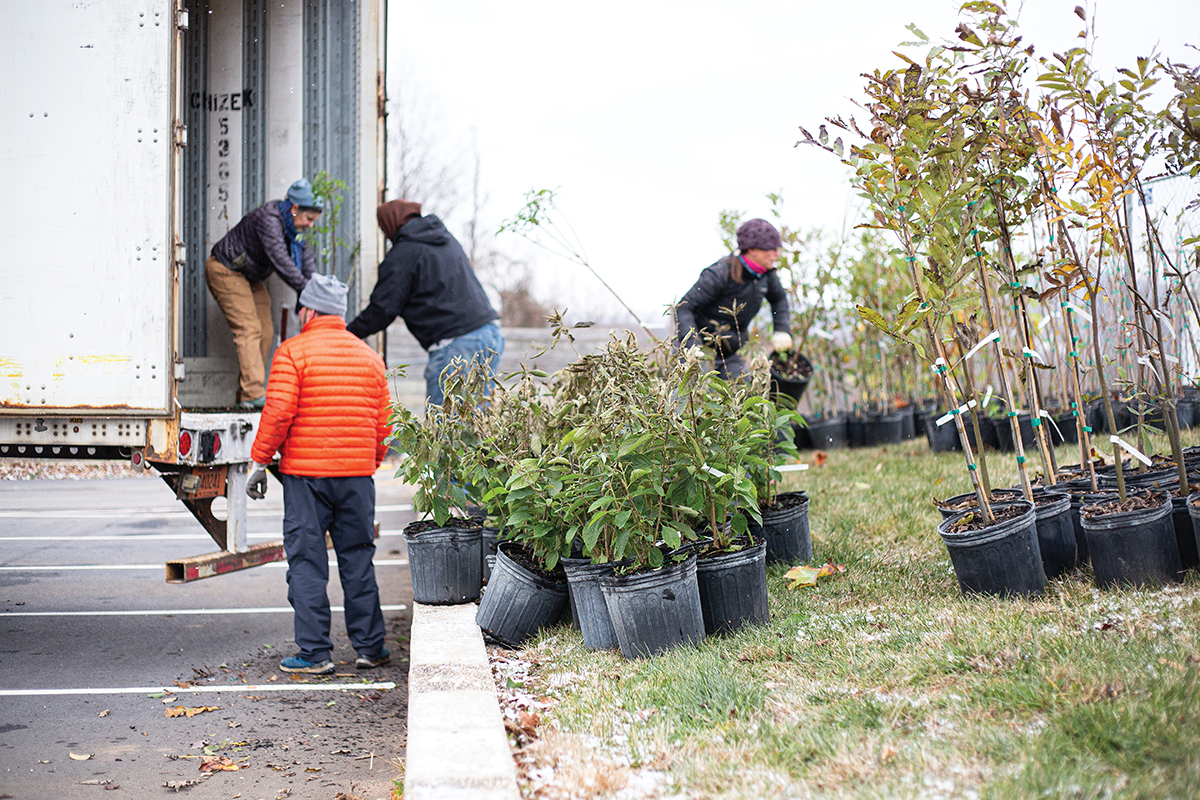
Cleanup after the storm
By Megan Ward
In the months since Hurricane Helene tore through Western North Carolina, Asheville GreenWorks has stepped into a new era of community-powered environmental recovery. What began as a grassroots response to an unprecedented crisis has evolved into one of the most robust efforts in the organization’s 50–plus–year history.
Helene delivered historic rainfall and wind damage across WNC—triggering mudslides, flooding and long-term ecological disruption. The damage to Buncombe County’s tree canopy was staggering—early estimates suggest a loss of more than 40 percent, or roughly 822,000 trees. In response, Asheville GreenWorks dramatically expanded its tree distribution program. Since Helene, the organization has given away more than 6,000 trees to residents, community groups and municipalities working to rebuild ecological resilience while providing critical benefits to residents—like shade in the face of rising temperatures. These tree giveaways are about more than just planting; they represent long-term investments in stormwater manage

Asheville GreenWorks crew unloading saplings
ment, urban cooling, wildlife habitat and air quality.
“We’ve never seen this level of need,” says Eric Bradford, director of operations at GreenWorks. “Our community is still reeling from the storm, but they’re showing up, asking for trees, asking how they can help.”
As summer temperatures rise, the organization has temporarily paused tree distributions—recognizing that trees planted in high heat often fail to thrive—but will restart this fall with renewed urgency and expanded partnerships.
Tree canopy loss is just one piece of the post-Helene landscape. The region’s rivers and streams were hit hard by severe flooding and debris. Although Asheville GreenWorks is well–known for its waterway cleanups, the scale of post–storm damage has forced a shift in strategy. With contractors still working to remove large storm debris from the French Broad River and its tributaries, the nonprofit is focusing its clean-up efforts in neighboring counties—bringing its tools, boats and know-how wherever it’s needed.
“We’re not waiting,” says Bradford. “If our gear sits in a parking lot not getting used, it’s a complete waste. So we’re lending it out—canoes, safety gear, litter grabbers—you name it.”
From Yancey to Henderson County, GreenWorks is empowering local volunteer groups to lead their own cleanups. This support includes not just gear, but also logistics coaching and volunteer training, drawing on the organization’s decades of experience mobilizing grassroots efforts.
This networked model of resilience—local volunteers, regional collaboration and deep trust in community partners—is what defines Asheville GreenWorks’ post–Helene approach. Rather than operate as a top-down nonprofit, GreenWorks acts as a conduit: delivering resources into neighborhoods, supporting mutual aid efforts and ensuring that under-resourced communities are not left behind in the long road to recovery.
Even as the organization scales its efforts, it remains deeply grounded in community action. From neighborhood tree giveaways to lunchtime cleanups led by local businesses, the ethos is clear—solutions must come from the ground up.
Looking ahead to fall 2025, Asheville GreenWorks is already planning for thousands more trees to be distributed and dozens of additional cleanups across the region. The challenges left in Helene’s wake are real and ongoing. But with its nimble operations and a community-first mission, Asheville GreenWorks is helping WNC not just recover but rebuild with equity and environmental justice at the center.
Megan Ward is the marketing and development director for Asheville GreenWorks. To stay informed on upcoming tree giveaways, river cleanups and other opportunities to get involved, sign up for Asheville GreenWorks’ newsletter at AshevilleGreenWorks.org.






